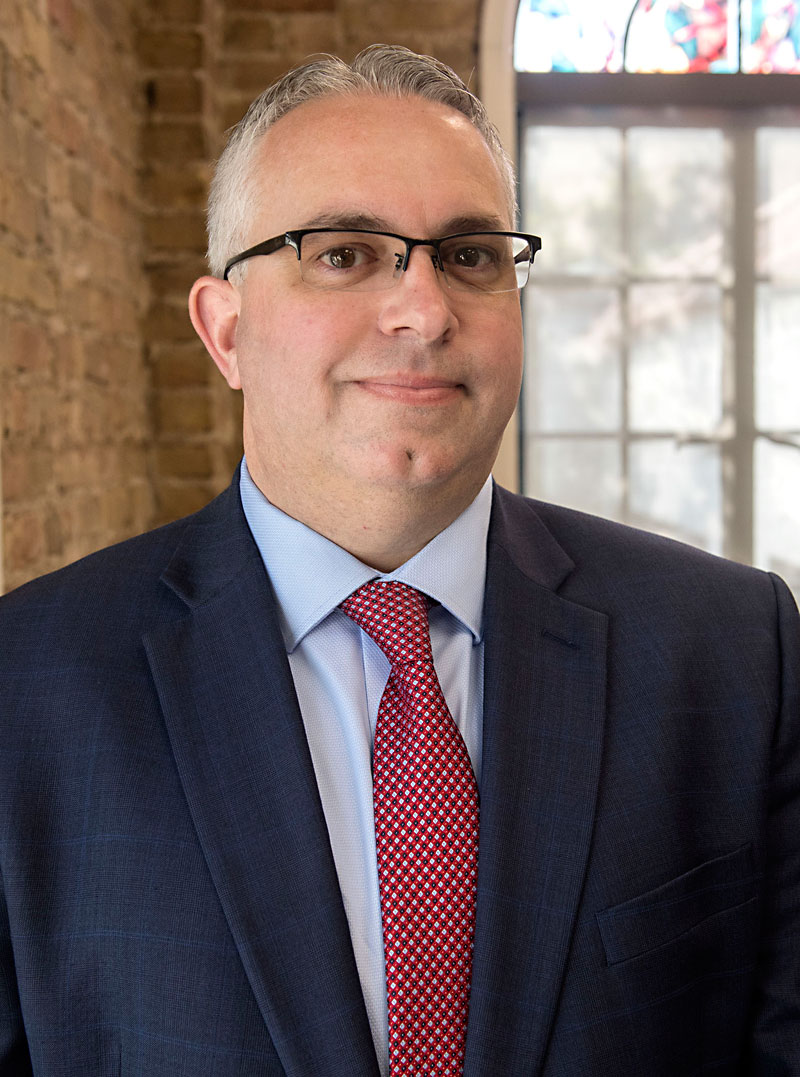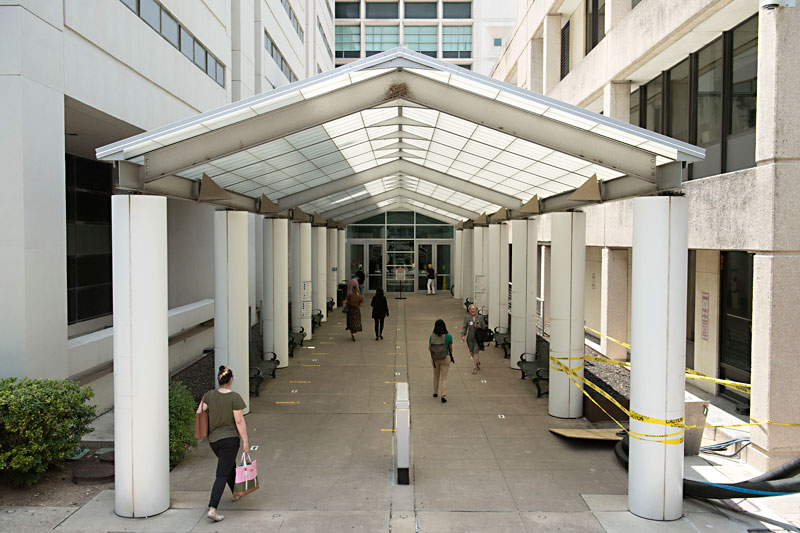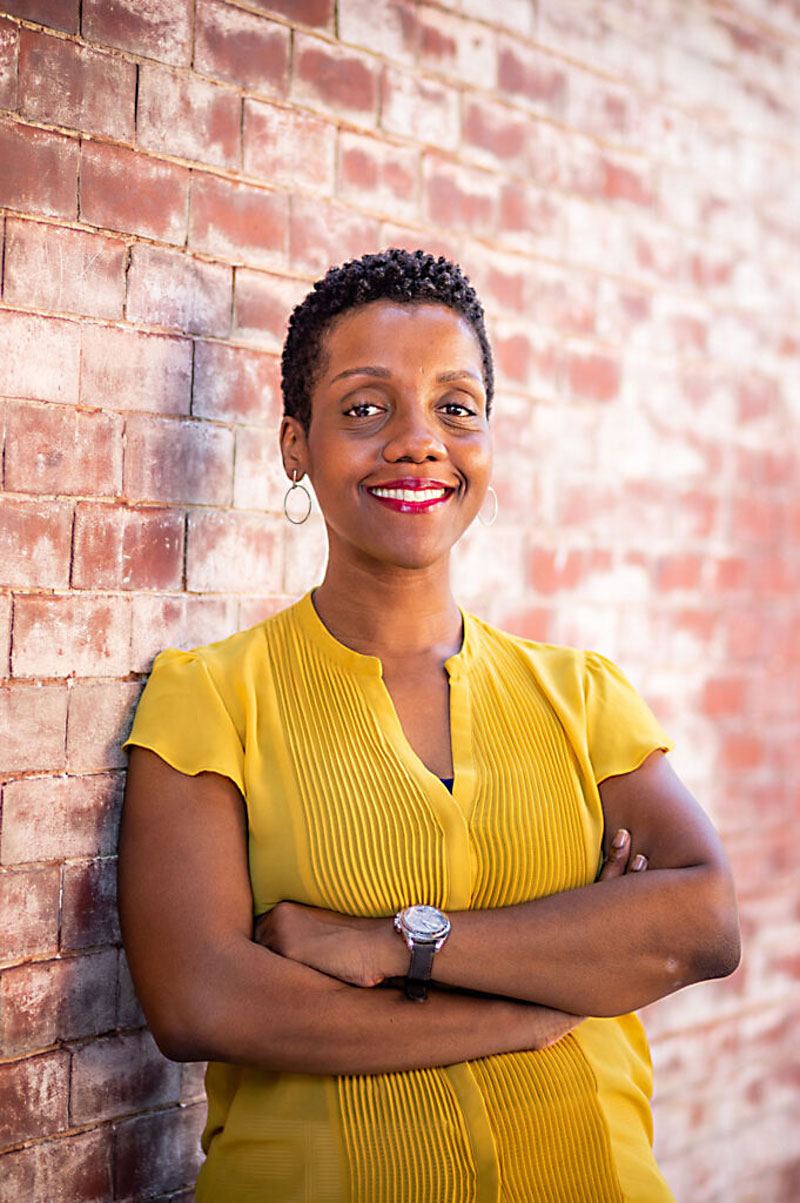Travis County Tries to Fix Its Public Defense Problems
But advocates warn about the middleman
By Lina Fisher, Fri., June 23, 2023
Texas is experiencing a crisis in its public defense system, and Travis County is no exception. The right to counsel during trial has always been guaranteed under the Sixth Amendment, but since 1963, Gideon v. Wainwright has ensured a free lawyer to criminal defendants who can't afford one on their own – it just didn't specify how they would get one. In Texas, counties are required to design their own patchwork of public defense for indigent clients with little help from the state, which has punted 87% of funding responsibilities for defense to already cash-strapped counties. Texas ranks 46th in the nation in state spending for public defense, according to the Sixth Amendment Center. Along with a lack of funding, Texas' 2011 statute mandating public defenders' offices is maddeningly vague on design – a county may provide the service through contracting with a nonprofit (managed assigned counsel) or through a county department.
The way Travis County does public defense is unique – in that we have way, way too many offices. The first, created in 1971, the Juvenile Public Defender's Office, was the only one until 2007, when the Mental Health Public Defender's Office was created – the first of its kind in Texas. In 2014, Capital Area Private Defender Service (CAPDS) was founded, a nonprofit with a roster of 150 different private attorneys with their own separate practices, plus 15 full-time staff attorneys, three supporting, and 11 case managers and social workers. CAPDS served as the de facto public defender for all adult indigent clients in the county for years before the county's first adult Public Defender's Office (PDO) was created in 2019. (There are 51 PDO staffers in all, but by the end of 2024 there will be nearly 70.) CAPDS still handles 85% of indigent cases, while the Mental Health Public Defender works 2%-3%, and the PDO covers around 13%-15%. All of these departments have historically fallen under the county's Justice Planning Department, and the last time a reorganization happened was 2003.
In April, the county took a big step toward strengthening its defense services by consolidating the three offices into one unified entity. All three chief public defenders – PDO Chief Adeola Ogunkeyede, Mental Health PDO Chief Melissa Shearer, and Juvenile PDO Chief Kameron Johnson (who retired this year) – supported the change, and so did justice advocates who testified at the April 18 meeting, saying it will help them share resources and become more efficient. However, advocates and chiefs alike did not look as kindly upon the county's decision to authorize a county executive position, meant to be a middleman between the commissioners court and the unified PDO.
“Why the Middleman?”
The county executive position – which Harris County has in the same structure – is meant to oversee the new Department of Community Legal Services, which will include the unified PDO, offices of parent and child representation, and the law library. (And the exec will be paid about $250,000 a year.) This new department would take defense out of Justice Planning, returning that department to actual planning functions like research, finding grants, and community engagement.
As the legal services offered by the county grew haphazardly, the executive in charge of Justice Planning had more and more responsibilities, "and it did sort of create some potential for conflicts," executive director of CAPDS Bradley Hargis says. "Because they worked on everything from the jail crowding problems to victim services, and that put the county executive in a very awkward place, like, 'Am I in charge of making sure we have the right amount of victim services? Or am I in charge of making sure you have the right amount of defense services?'"

Because of the unique mandate of a public defender to be an advocate for the accused, one of the main 10 principles of public defense, according to the American Bar Association, is independence. "Independence of the public defense function, independence from judicial influence, independence from political influence, needs to be guaranteed to be able to guarantee those who are being represented their full complement of rights," Ogunkeyede told the Chronicle. Vicky Ashley, the interim executive director of Justice Planning, presented the idea of the county executive to commissioners as a way to designate a specific advocate for the PDO to the court for things like budget increases, but the chiefs feel they already advocate for themselves better than a middleman could, and that the county executive could undermine the PDO's independence.
"There's a lack of clarity around the new executive's role," read a statement from Advocates for Social Justice Reform, voicing a sentiment echoed by most advocates at the time of the vote. Grassroots Leadership's Chantel Pridgeon worried that a county executive position would "prevent the chief PD from having the full control over staffing, budget, and data collection they need to best represent their clients." Ogunkeyede agreed, saying PDOs know how to handle that bureaucracy "because we do that right now – make decisions about the legal and administrative aspects of the work, and the way the resources get allocated in the office to do that. So it begs the question, why the middleman?"
"Because the role of the public defense function is to protect our friends and neighbors from government overreach, the public defender's office is the most in need of independence," says Nathan Fennell, a staff attorney for the Texas Fair Defense Project. "It's a really dangerous structural problem when the same government entity [commissioners court] is responsible both for taking people's liberty away, and also for trying to protect people's liberty." Fennell says a county executive's hiring, staffing, and data reporting decisions may seem bureaucratic but "can affect a chief defender's ability to build their office." Ogunkeyede says, "It can be intentional, and it can be unintentional, but it has the same effect, where there's potentially a limitation on the work being done in a way that actually supports high-quality representation."
Aside from questioning the need for the new position, Ogunkeyede says the county executive model is essentially what they have now and doesn't represent comprehensive change in how the county does defense. Yet the chief public defenders have been advocating for specific on-the-ground investments – mostly staff – for years. There is no social worker on staff at the Juvenile PD's Office, for example, and Ogunkeyede's lawyers have to step in on an ad hoc basis to inform non-U.S. citizens there of their immigration rights. "My disappointment is, what they're investing in is bureaucracy, and not immediate reinforcement of the people doing the work day to day on the ground." In the worst-case scenario – pointing to other counties around the country that have waged political battles with the PDO – Ogunkeyede fears commissioners could punish the office financially for speaking out about political issues. In the April 18 meeting there was a lot of discussion around the job description for the position, to ensure that they would have the best interests of the PDO at heart. But Ogunkeyede says it's not a question of who's in office – the problem is inherent to the role.
Commissioners stressed that the county executive would not have the power to hire and fire the chief defenders and would only be involved in administrative tasks. And Hargis is not worried: "I don't think the structure that the commissioners voted on provides an obvious impediment to that independence. We've had three public defenders reporting through a county executive for many years. You can't really have independence from commissioners court with regard to budget and resources, which is all this person would be empowered to work with you on."
Public vs. Private
Another question in this reorganization remains: Should CAPDS, the county-contracted nonprofit that serves the majority of indigent defendants, be folded in as a county department? The original goal was to have the PDO manage 30% of indigent cases and CAPDS take 70%, which would require the PDO to double its current caseload. And CAPDS is an important part of the defense puzzle, both functionally and financially. While other states like Colorado fully fund their indigent defense, Texas leaves that to counties. CAPDS's Hargis says the current system is "a less expensive, more scalable model," as nonprofits can solicit funding in more flexible ways than county governments. Plus, "in the context of the law, you get into sort of a maximum capacity for any single office, because you start running into conflicts." That's where non-county lawyers come in – and some say it's important for them to remain separate for that reason.
For example, if two people are accused of the same crime, they can't be represented by the same public defender – but because CAPDS attorneys each have their own practices, they're technically part of separate offices and thus don't run into conflicts like the PDO does. "We can have a case come through our office that has five co-defendants, we can assign that to five of our different attorneys, and handle all five cases," explains Hargis. Now that the PDO has been consolidated, he worries about the possibility of conflicts increasing – for example, with the Juvenile PDO and adult PDO combining, the office could need to represent both a case where a juvenile is accused of a crime and one where that same juvenile is a victim. Whichever case came to the PDO second would need to be handed over to CAPDS. That could make CAPDS's independence from the PDO even more important. (While the PDO growing will create more potential for conflicts of interest, it's also worth noting that, as the PDO's current temporary oversight board told the commissioners in a letter, integrating offices "will foster coordination and continuity of representation" if juveniles are charged with new crimes as an adult.)
Others feel that to ensure the same quality of services between both the PDO and the managed assigned counsel, folding CAPDS into a county department could guarantee parity in representation. Jim Bethke, current director of Bexar County's nonprofit defense program and former director of Texas Indigent Defense Commission, was instrumental in the creation of Travis County's public defense. Bethke says, "What we don't want to have happen is, if you get assigned to CAPDS, you don't have access to X, Y, or Z – something that the defender's office has. Ideally, both offices can have that same level of quality representation." Those who supported the idea of a county executive argued that they would push for that parity.
The Oversight Problem
The last piece of the defense reorg. is the oversight board, one of the best guarantees of independence an office can have. In 2019, the TIDC, which helps counties set up their public defense, gave Travis County a grant that will last until March next year to establish an oversight board for the PDO, called the Organizational Development Board. "Unlike most other Texas jurisdictions with public defender offices, Travis County's first two public defender offices did not have permanent oversight boards," read a letter to the court around the time of the April vote, written by Andrea Marsh, director of the oversight board. Justice advocates want to see a permanent oversight board to replace the temporary one when TIDC's grant runs out, but commissioners punted the issue in April.
There's some disagreement over whether such a board would oversee just the PDO or all community legal services, which include the law library and offices of parent and child representation. Questions remain about who will serve on the board, who they'll report to, and how they'll be appointed. Whoever is on the board will make recommendations to the commissioners about the hiring and firing of the chief defender and advise on budgets. For now, the temporary oversight board has weighed in on the issue of the new county executive role, telling commissioners in a letter that the public defender has "constitutional and professional obligations to its clients that may bring it into competition with other departments under the [county] executive."
Growing Pains
As the county's population grows, its public defense office will need to as well, and that will be expensive. That's why some advocates questioned the practicality of the decision to fund a new $250,000-per-year salary at the April meeting. Ashley pointed out that the county executive's salary has to be competitive, too, as top candidates had turned down other positions based on salary alone.
For others, it's a question of looking more holistically at how the county's defense system compares to the national standard. "There's a history that Travis County is weighed down by, and that replicates itself in all of these conversations," said Ogunkeyede. "My hope would have been that, in this reorganization, Travis County tried to slough off as much of that history as possible and really take fresh eyes at what it is, what it was, and what it could be – I'm not sure that they did that." The oversight board, for their part, added in their letter that they'd like to see the goal of expansion explicitly included in the reorganization, so that the PDO can handle appeals or immigration services.
There's still time for the public to weigh in on this reorganization, too. The job description for the new county executive is being drafted and will come before the court later this summer, after a public town hall to solicit input. In the April meeting, justice advocates urged that they be allowed to give more input during the process of drafting the job description – that the county's public engagement could use some work, with some meetings being held at 9:30am. "One of the responses from commissioners was that they were surprised there was community opposition," said Grassroots Leadership's Pridgeon. "We believe that in order for community sessions to be truly open and accessible ... these meetings need to be during times people working jobs can attend."
Got something to say on the subject? Send a letter to the editor.










